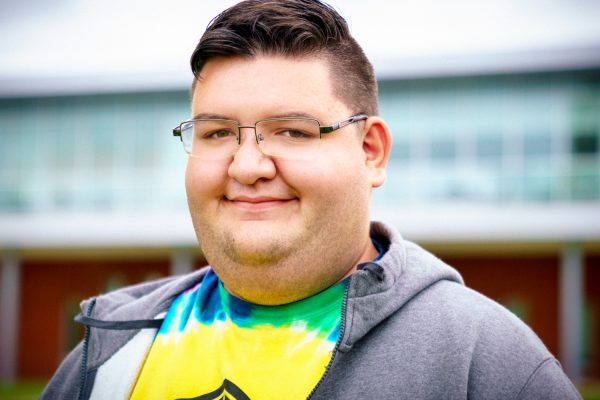PioTalk: ‘The Kyle Rittenhouse case had little to do with self defense’
March 3, 2022
Utica University’s Center for Africana Studies and the Center for Historical Research presented a PioTalk on Feb. 23, addressing the Kyle Rittenhouse case.
The case revolved around then 17-year-old Rittenhouse, who shot three men, two of whom died, during an August 2020 protest in Kenosha, Wisconsin. In November 2021, Rittenhouse was found not guilty of all charges after arguing self-defense.
The talk was led by Associate Professor of History Dr. Clemmie Harris, who used the case as an opportunity to explain how it ties into the continuing struggle of history involving racial violence, whiteness and American retrenchment to civil rights.
Harris began the PioTalk by looking at the history of racial violence, as far back as 1830. As time moved on, racial violence continued during the Civil Rights Movement, and was more recently seen surrounding the death of George Floyd.
“The roots of racism are very long and constantly growing,” Harris said. “The Rittenhouse case is just, unfortunately, another incident that grows those roots.”
Many advocates have been hurt or killed during protests for awareness and justice during the Black Lives Matter movement.
Harris said another contributor towards the violence and problems can be pointed to failure on local law enforcement, specifically in the Rittenhouse case. Many believe that law enforcement should also be held accountable in the Rittenhouse case as well, as some say it’s a way of showing that Kyle Rittenhouse didn’t act alone.
Cases such as Rittenhouse’s are seen through the culture of white supremacy, Harris said. Showing pictures such as the “OK” hand symbol that became known as the Rittenhouse Bond motion in this instance, as well as protestors who held signs saying “free Kyle now.”
“There is always an option,” Harris said. “We don’t choose our foes, but we do choose our commitments. It’s those commitments that lead to the choices we ultimately make.”
Harris also explained how police reactions and procedures have changed over the years, showing historically how original methods used to be more heinous and brutal. In the present day, some casual searches done by police can end up going badly.
“Nowadays, if a person refuses to do something for an officer, they have the right to restrain and arrest the person,” Harris said. “But even then, things can still get worse.”
Harris used this to lead into his next point which involved race, resistance and predatory policing. He used examples of crimes and how people were treated differently by law enforcement due to their race. His examples showed the evolution from 1960 through 2015.
At the end of the lecture, someone asked a question about his thoughts on the future.
“I’ve been a mentor for more than 30 years,” Harris said. “So I’m very concerned for the emerging generation in the coming future. What we’re seeing here is something that hasn’t been fixed for so long. Racism isn’t ending, it’s morphing and changing as time goes on.”
Another person asked Harris about his views on law enforcement, to which he responded he believes they are needed, but there are still circumstances that can lead to negative outcomes.
“I believe every city or town needs law enforcement, but it’s extending them without the proper training on accountability that makes things take a turn to worry,” he said.
Many students praised Harris after the PioTalk for being able to lecture about such an important topic that needed to be discussed.
“I think it was really interesting and moving,” animal behavior major Alexis Chrysler said. “He makes you want to learn more and be more involved. He also has a really good way of describing and relating situations to make an impact.”
Sophomore Caph Dias agreed and said something new is always learned when attending one of Harris’ events.
“He’s really good at connecting history to the present and showing how racism has existed in many forms in the past that reappear today,” Dias said.


















![President Todd Pfannestiel poses with Jeremy Thurston chairperson Board of Trustees [left] and former chairperson Robert Brvenik [right] after accepting the university's institutional charter.](https://uticatangerine.com/wp-content/uploads/2023/10/unnamed.jpeg)



















































































































